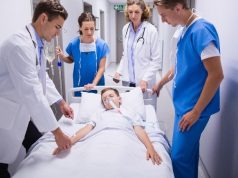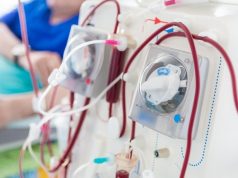30.2 and 8.6 percent of patients presenting to ED not known to have diabetes had prediabetes and T2D, respectively
By Elana Gotkine HealthDay Reporter
TUESDAY, Oct. 10, 2023 (HealthDay News) — Screening for type 2 diabetes (T2D) or prediabetes in emergency departments could identify previously undiagnosed cases, according to a study presented at the annual meeting of the European Association for the Study of Diabetes, held from Oct. 2 to 6 in Hamburg, Germany.
Edward Jude, M.D., from the Tameside and Glossop Integrated Care National Health Service Foundation Trust in Ashton-under-Lyne, England, and colleagues screened 1,388 individuals attending an emergency department and not known to have diabetes, using hemoglobin A1c (HbA1c). The Finnish Diabetes Risk Score (FINDRISC), which identifies individuals at high risk for developing T2D, was calculated for all patients.
The researchers found that 61.1 percent of the patients had normal glucose tolerance, while 30.2 and 8.6 percent had prediabetes and diabetes, respectively, with similar proportions seen in men and women. Each unit increase in the FINDRISC was associated with a significant increase in the risk for prediabetes and diabetes (odds ratios, 1.09 and 1.16, respectively); after adjustment for age and sex, the associations were attenuated but remained significant (odds ratios, 1.07 and 1.15, respectively). A higher incidence of glucose intolerance was seen for South Asian and other ethnic minorities compared with Caucasians (42.65 versus 37.8 percent), and they were twice as likely to have prediabetes or diabetes (odds ratios, 1.90 and 2.61, respectively).
“Opportunistic HbA1c-based screening in accident & emergency departments, particularly those in high-risk and hard to reach groups, could make an important contribution to identifying undiagnosed individuals who will benefit from early treatment and lifestyle changes and so reduce their risks of long-term complications,” Jude said in a statement.
One author disclosed ties to the pharmaceutical industry.
Copyright © 2023 HealthDay. All rights reserved.








